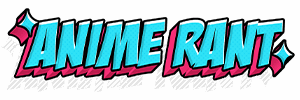Introduction
"Attack on Titan" (Shingeki no Kyojin), created by Hajime Isayama, has captured the hearts and minds of audiences worldwide since its debut as a manga in 2009. The series, which was later adapted into one of the most popular anime of the 2010s, presents a multifaceted narrative that delves into themes of freedom, morality, and the consequences of power. As the story unfolds, viewers witness the grand rise and tragic fall of titans, both literal and metaphorical. This article explores the intricate narrative of "Attack on Titan," examining its characters, themes, and the societal commentary woven throughout.
The Premise: Humanity on the Brink
Set in a world where humanity is on the brink of extinction due to monstrous creatures known as Titans, the story starts within a walled city designed to protect the remnants of civilization. These Titan giants, who devour humans on sight, serve as a primary antagonist, representing the fears of the unknown and existential threat to humanity. However, as the series progresses, titans reveal themselves to be more than just mindless beasts—they embody the fears, struggles, and darker aspects of humanity.
Complex Characters: Heroes or Villains?
At the heart of "Attack on Titan" lies a rich tapestry of characters, each grappling with their definitions of morality, duty, and freedom. Eren Yeager, the story’s protagonist, transforms from an idealistic youth seeking revenge against the Titans to a complex figure whose choices raise ethical dilemmas. His evolution reflects the series’ exploration of the cyclical nature of violence and the heavy burden of freedom.
In contrast, characters like Reiner Braun and Zeke Yeager provide nuanced perspectives on the conflict. Reiner, initially presented as a hero, is later revealed to be a warrior from the enemy nation of Marley, forced to reconcile his loyalty to his comrades in the Survey Corps with his role in a larger scheme of war. Zeke, a tragic figure with his own motives, complicates the narrative further, embodying the generational traumatismo and abandoned dreams pervasive in the series.
Themes of Freedom and Oppression
One of the most compelling themes in "Attack on Titan" is the struggle for freedom—both the desire for personal autonomy and the broader societal implications of liberation. The series poses thought-provoking questions: What does it mean to be free? At what cost does that freedom come? The oppressive walls surrounding the city not only symbolize physical confinement but also represent ideological barriers that stifle growth and understanding.
Throughout the series, the concept of freedom is both a source of motivation and a catalyst for chaos. Eren’s desire for freedom leads him down a dark path, culminating in devastating consequences. The narrative interrogates the fine line between liberation and oppression, asking whether the ends justify the means in a world fraught with conflict.
The Cycle of Violence and Its Consequences
Isayama does not shy away from portraying the brutal realities of war. The series showcases the cyclical nature of violence—where hate begets hate and the oppressed can become oppressors. The complexity of this cycle is emphasized by the actions and motivations of characters, challenging viewers to contemplate the ramifications of their choices.
The final seasons of the anime delve deeper into this cycle, revealing dark truths about the history of Eldians and Marleyans. The once clear-cut distinction between good and evil blurs, forcing audiences to confront uncomfortable moral ambiguities. The philosophical underpinnings of the narrative compel viewers to reckon with their own perspectives on justice and order.
The Cultural Commentary
"Attack on Titan" also serves as a form of social commentary, reflecting historical and contemporary issues. Isayama draws inspiration from real-world conflicts, illuminating the tragedy of war, nationalism, and prejudice. The series mirrors humanity’s propensity for division, showcasing how fear can lead to dehumanization and injustice.
The political dynamics within the story echo historical events—such as the persecution of marginalized groups and the complexity of identity—creating a rich tapestry that resonates deeply with audiences. By situating the narrative in a fictional world that closely parallels our own, Isayama underscores the importance of empathy and understanding in overcoming societal divisions.
Conclusion: The Legacy of Attack on Titan
As "Attack on Titan" approaches its conclusion, it leaves viewers with more questions than answers. The rise and fall of titans—both literal and metaphorical—serve as a poignant reminder of the fragility of humanity, the consequences of power, and the eternal quest for freedom.
By weaving together complex characters, morally ambiguous choices, and profound thematic explorations, Isayama crafts a narrative that transcends the boundaries of typical shonen storytelling. The legacy of "Attack on Titan" lies not only in its thrilling battles and gripping plot twists but in its ability to provoke thought and inspire discourse about the human condition.
As fans say goodbye to this storied franchise, the lessons learned from the rise and fall of the titans will linger, urging us to reflect on our own lives and the choices we make in a world that continues to grapple with the very essence of freedom and humanity.

